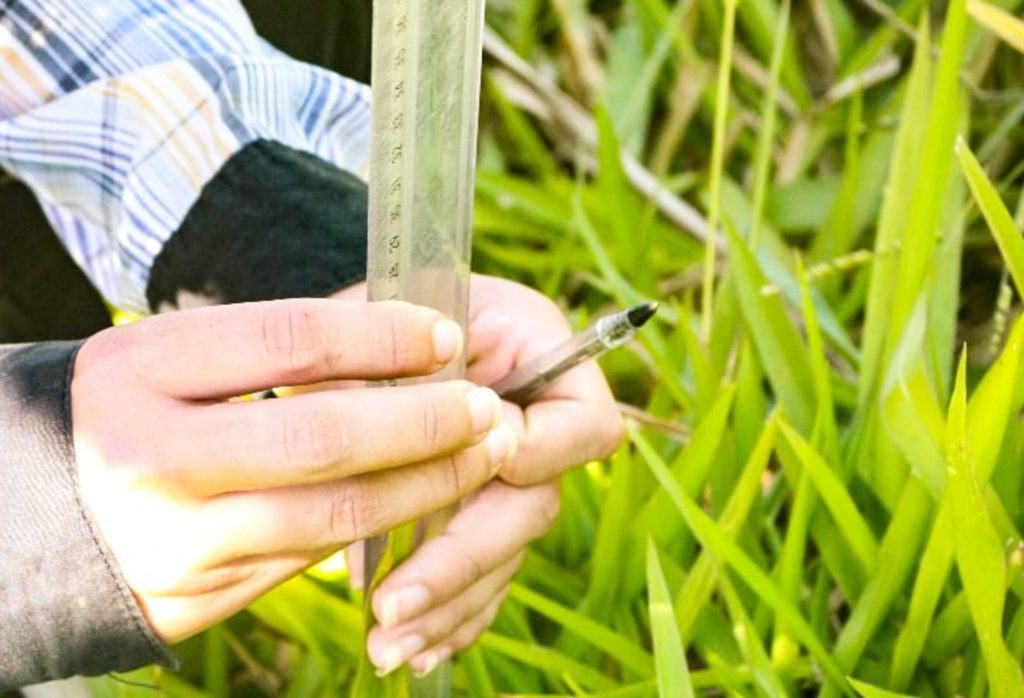Opinion: Caring for Our Private Spaces
By • October 31, 2022 One Comment 1150

We take care of our public green spaces. Why don’t we care about the private ones?
The public green spaces in Georgetown are supported by a patchwork of government and volunteer workers, funds, and management. My park, Rose, benefits from city money and workers, of course, but it has been transformed by my indefatigable neighbor David Dunning and the other volunteers who spend their free time working to make the park a clean green oasis for kids and their parents, basketball and tennis players, dog walkers and bike riders.
This civic mindedness is on display all over Georgetown. Montrose, Volta, Book Hill, the waterfront—these places thrive because regular people are willing to put their time and money into making both Georgetown and, by extension, Washington a nice place to live. Green spaces are vital, we know, to making cities desirable places to live, to cutting noise and air pollution, to improving mental health.
The trouble is that this public-minded interest in places, in the intangibles that make Georgetown so special, like our pretty old houses and grand trees, doesn’t extend to private space, and it needs to.
A couple of years ago, my now-former neighbors bought a standard row house on a quiet street. Three babies and an uptick in finances later, my neighbors decided they wanted to expand it—mind you, this is a not-big house on a not-big plot. Their idea: tack 20 feet onto the back of the house. Build a two-story tube. All the other neighbors were appalled. “Just … move,” someone suggested, there’s certainly no shortage of houses in Georgetown.
They were not going to move. They dug in. After they filed their request for an extra 20 feet, D.C. changed the rules so that you can now add no more than ten feet to your house (though ten feet is a lot). Once again, the neighbors dug in. They requested a special exemption from the Board of Zoning Adjustment to get their extra 20 feet, and they succeeded, with a few feet chopped off and some slight modifications.
The regulatory bodies, one after the other, failed to protect the neighbors or the green space. Our Advisory Neighborhood Commission served as, possibly, the most useless of all. It refused to take a stand but not before one member, a student from Georgetown University, admonished us neighbors for objecting to the addition, saying I had a pretty big garden for Georgetown — so I should just learn to live with diminished sun and air. The Old Georgetown Board, for its part, cared only about windows and building materials and not about the size of addition itself.
After all this, the neighbors just … moved. To a much bigger house up the street. But they had their exemption. And in June they sold their old house to a developer, who is now starting work on the tube.
That’s a lose-lose for everyone, except the former neighbors and the developer all of whom, presumably, will make money off the extension.
This is all bad. This series of poor decisions now means that people with gardens in the center of the block will get less sunlight and air flow. Decades-old trees will die. The people living behind the extension will lose their privacy. And the greenery that beautifies the neighborhood — even if it is behind a fence — will continue to disappear.
We need more protection of trees and gardens in Georgetown — or better neighbors, and that’s not going to happen. Preserving the fabric of the neighborhood, its green space and quiet places, whether public or private, should be a priority. Even the ten additional feet allowed by the city is too much. It is time we acknowledge that unbuilt parts of the Georgetown should be treated with as much respect as the buildings. If residents don’t like it, they can just move.
Alison Schafer is an O Street resident on the east side of Georgetown.


Can someone please explain what a “Tube” is? I haven’t owned a home since the early 2000s, and have no idea what it means?